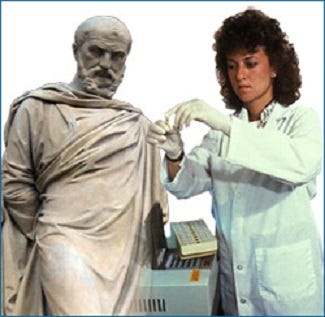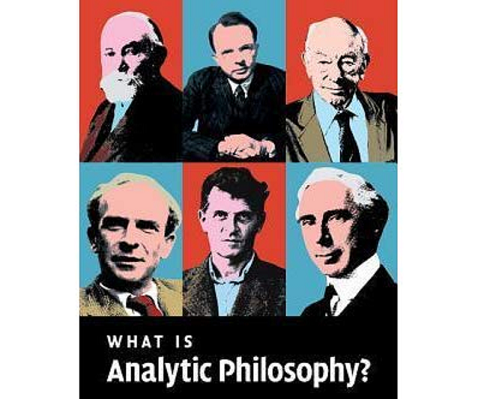First
things first. When the word “spooky” is used to refer to Roger
Penrose's scientific and philosophical ideas about consciousness, I'm
not being overly critical or even critical at all. That may sound odd
or self-contradictory
at first. However, I use the word “spooky” simply because it's so convenient. If I were being entirely critical of Penrose's
scientific views on consciousness, I'd probably use RationalWiki's
favourite word - “woo”
(i.e. pseudoscience);
or some such equivalent. In any case, one phrase, “spooky
action at a distance”, became commonplace in the 20th century and that's about a scientific phenomenon which just about all
scientists accept.
So
I don't think that Penrose's work on consciousness is
woo/pseudoscience. Certainly not! Having said that, I do have
problems with it, as we shall see.
Despite all the above, I'm not scientifically qualified to class his physics as
either “spookery” or “woo”. Then again, I do think I have
various philosophical angles on his scientific claims. And they've
led me to the word “spooky”; though not to the word “woo”.
*****************************
 |
| Stuard Hameroff and Penrose |
The
obvious thing to say about Roger Penrose – in this context - is
that he's neither a neuroscientist nor a (professional) philosopher: he's a
(mathematical) physicist
and a mathematician.
In certain senses that's a disadvantage. In other senses it will be
an advantage. In any case, it's not surprising that Penrose has
worked with, among others, the anaesthesiologist Stuart Hameroff.
As
a non-scientist myself, it's hard to find a secure entry into the
scientific positions of Penrose. Then again, not all of Penrose's
position are themselves scientific. Some are philosophical; others
are derived from (pure) mathematics. Nonetheless, it can't be said
that only experts can have anything constructive to say about the
findings of neuroscience because Penrose himself – as just stated -
isn't a neuroscientist.
Not only that: many neuroscientists themselves may be
philosophically, conceptually or argumentatively illiterate. That may
be one reason why there's sometimes a lack of progress in
“consciousness studies”.
I
mentioned Penrose's non-scientific position and it's strange how many
areas outside science (or at least outside of physics) have motivated
Penrose's position on consciousness.
For
example, we have his interest in a "Platonic reality", “mathematical
insight” and creativity generally; as well as in Gödel's
incompleteness
theorem.
All these things can arguably be seen to take consciousness beyond
the realm of the physical and therefore beyond science itself.
Nonetheless, Penrose himself wouldn't stress this aspect of his work.
He is, after all, a committed and notable
physicist and mathematician.
Technically,
Penrose's main motivation is that there are elements of the brain -
and therefore consciousness - which are nonalgorithmic and noncomputable. Prima
facie,
it may be wondered what the strong connection is between
noncomputability and consciousness.
Anti-Reductionism
and Spookery
Marvin
Minsky graphically captures one aspect of Roger Penrose's (possibly)
spooky science of consciousness: his anti-reductionism.
Minsky said
that
Penrose "tries to show, in chapter after chapter, that human
thought cannot be based on any known scientific principle”.
Moreover, Minsky ties Penrose's
spookery to his
search for “new basic principles”. He continued by saying
that
"one
can carry that quest [for scientific explanation] too far by only
seeking new basic principles instead of attacking the real detail”.
Finally
Minsky says that “[t]his is what I see in Penrose's quest for a new
basic principle of physics that will account for consciousness”.
This is exactly what the philosopher David
Chalmers
is also doing; though his (possible)
First
Principles are certainly not the same as Penrose's.
Thus
could Roger Penrose's position be entirely motivated by scientific
anti-reductionism? Doctor Susan Blackmore
certainly thinks that this is an important motivation. Or at least
the programme maker in the following quote does. She
writes:
“Finally
they got to consciousness. With clever computer graphics and
Horizonesque hype they explained that brave scientists, going against
the reductionist grain, can now explain the power of the mind to
transcend death. It all comes down to quantum
coherence
in the microtubules. And to make sure the viewer knows that this is
'real science' the ponderous voice-over declared 'Their theory is
based on a well established field of science; the laws of general
relativity, as discovered by Einstein.'...”
Sure,
Blackmore's
talking here about “near-death experiences” (NDEs). Yet those who
believe in this – or at least some of them - have found succor in
“quantum coherence in the microtubules”. Now don't those things
sound very scientific? Of course we'll now need to know what quantum
coherence
is. (Or is it really a case of needing to know whether or not the
believers in NDEs actually have any idea of what quantum coherence
is?)
Of
course Penrose and Stuart Hameroff can't personally be blamed for
spook-lovers
quoting their work. However, a psychologist or philosopher may tell
us that these two fellows – both scientists
- are motivated by very similar things. After all, Hameroff himself
has talked about NDEs.
Specifically,
Hameroff has said that when the brain dies (or stops functioning),
the information within that brain's microtubules remains alive (as it
were) or intact. Moreover, the information of the microtubules leaks
out into the world (or, well, into the universe).
Not only that: this microtubular information remains intact and bound
together because of the
power
of quantum coherence.
Hameroff
goes even further. He's stated that this phenomenon explains why the
subject can experience – see? - himself hovering over his
own body. That is, Hameroff seems to endorse near-death experiences.
Yet even if “information” (P.M.S.
Hacker would have a field day with this word – see here)
did leak out into the universe, how would that make it the case that
the body which hovers above also has a
body and sensory experiences? Microtubular information in the
air doesn't a physical person make. And without a physical body,
there are no sensory experiences or anything else for that matter.
Thus this is like claiming that if you turn the computer off and then
smash it up so violently that its material structure shatters into
dust, then the "information" inside would still be intact and would
simply float in the air above it. In other words, the soul of the
computer would still exist. Unless Hameroff is simply telling us
about what he thinks people imagine (or hallucinate) when they're
having a NDE. Though if that's the case, why all this stuff about
microtubular information leaking into the air or even into the
universe?
This
spooky anti-reductionist motivation is further explained by the
philosopher and materialist
Patricia Churchland and also the philosopher Rick
Grush.
According to Blackmore,
“they
suggest, it is because some people find the idea of explaining
consciousness by neuronal activity somehow degrading or scary,
whereas 'explaining' it by quantum effects retains some of the
mystery”.
Churchland
is even more dismissive when she
says
(as quoted by Blackmore):
“Quantum
coherence in the microtubules is about as explanatorily powerful as
pixie dust in the synapses.”
To
put it more philosophically and simply, Penrose and Hameroff's
position appears to be a defence of traditional dualism. Or, at the
very least, the belief in NDEs certainly backs up traditional
dualism. And, as we've just seen, Hameroff has defended NDEs.
Dualism,
Intuition and Free Will
Traditional
philosophical dualism has just been mentioned. Here again we can tie
Hameroff
and Penrose to the concerns (or obsessions) of traditional
philosophy. That is, Hameroff hints that his and Penrose's positions
may solve the traditional problems of free will, “the unitary sense
of self” and the source and nature of intuition/insight. More
specifically, all these philosophical conundrums can be explained by
quantum
coherence in the microtubules.
In terms of simply-put examples, free will is down to quantum
indeterminacy; non-locality is responsible for “the unity of
consciousness”; and quantum computing (i.e., non-algorithmic
processing) is the baby of “quantum superposition”.
In
the technical terms of mind-brain interaction, and as a result of
accepting mind-body dualism, the brain and mind can be mutually
involved in quantum “entanglement” which is “non-local”.
Thus, put simply, we can have mind-to-brain causation. Though this
would of course depend on seeing the mind as not being the brain or
not even being physical (in a strict or even a non-strict sense). This would
put both the mind and brain in the same holistic package and that
would help all of us explain.... just about everything!
Another example of Penrose going beyond science/neuroscience is his
reliance on Kurt Gödel's incompleteness
theorem.
These show him that the brain can (or could) perform that which no
computer could perform. From that, Penrose concludes that
consciousness may be non-algorithmic. And, as a further consequence,
it will be the case that the brain and consciousness can't be
accounted for in terms of a Turing-machine computers. And if this
were the case, it would take Penrose beyond Artificial Intelligence
and perhaps beyond all physicalist notions of mind and consciousness.
Now
for free will.
As
many philosophical commentators on free will have stated, how would
quantum randomness give us free will? (That's a question from those
philosophers who accept the words “free will” in the first
place.) Indeed how would it give us any kind of coherent
consciousness or cognitive activity? Having said that, it's not the
case (or not necessarily
the case) that something's being non-algorithmic (or non-computable)
is also a case of its being random in nature. Penrose, for one,
doesn't square his own version of “state
reduction”
with randomness.
Despite
just attempting to save Penrose's position from accusations of
randomness, his “objective
state reduction”
can still be explained in terms of stochastic processes. Such
processes would also be indeterministic; as well as probabilistic.
However, does the stochastic, indeterministic or probabilistic give
us something better than (pure) randomness when it comes to the
brain, mind and consciousness? Surely free will, for one, can't be
any of these things. (Though that would depend on definitions and a
whole host of other things.) And how would consciousness - as well as
cognitive activity generally - fair when it comes to stochastic,
indeterministic or probabilistic processes? Nonetheless, computers
fair well with these things. That is, indeterministic, probabilistic or stochastic processes can be implemented in computers. In other
words, such processes are computable! Thus that must also mean that
they can be found in brains too. However, does that automatically
answer the question as to whether or not these strange things can
give us free will, systematic cognitive activity and consciousness;
as well as the (phenomenological) unity of consciousness or the
self?
**************************************
Note
1
The Hard Problem of Consciousness (to use Germanic capitals) isn't
answered by anything that Penrose has to say. Or at least that's
often the accusation. Whatever it is that Penrose has to say about
microtubules, intuition and quantum this, that and the other,
none of it will tell us why we have subjective experience; or why the
experience of a red rose is the way it is.
Quantum
mechanics may be at the heart of the nature of consciousness; though
it doesn't (as yet) answer the hard question. It doesn't tell us why
quantum x gives rise to non-quantum experience y or why
experience y feels the way it feels.
In
terms of subjective experience, Penrose's quantum business doesn't
explain to us why we experience “the unitary sense of self”
either. A philosopher like Daniel Dennett - and I tend to agree -
would say that we don't actually have an experience of the unitary
sense of self... though, if we do....Having said all that,
these hard questions may be entirely bogus.













